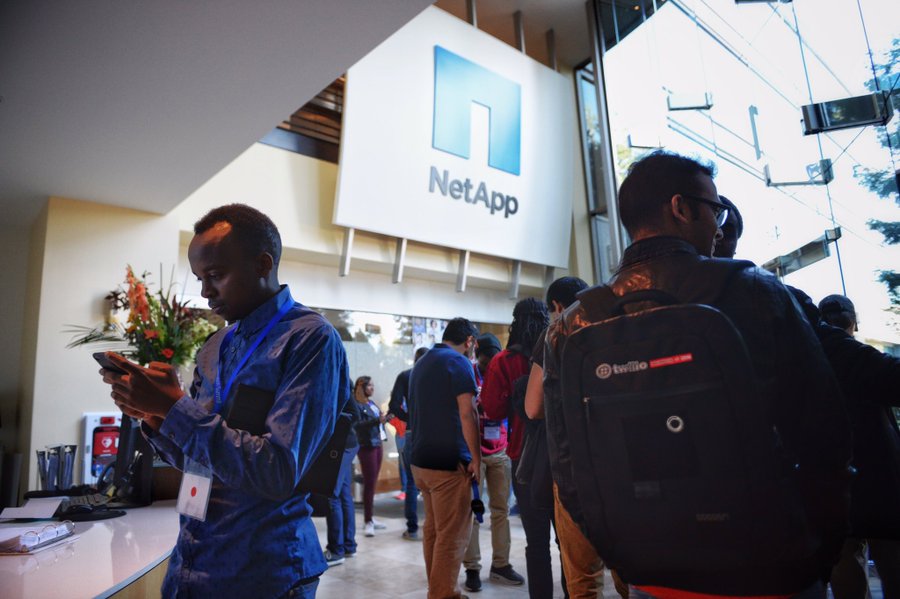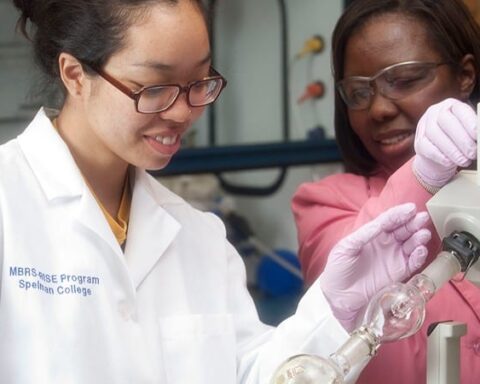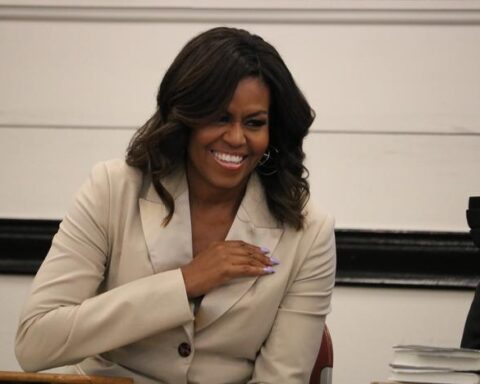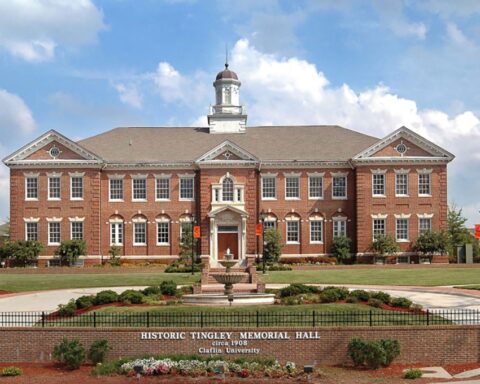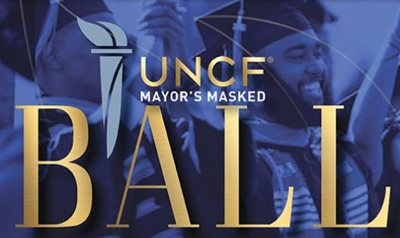By Gregory Clay
Rules of engagement: 10 teams. Five to six members per team. Four-and-a-half minutes to state your case. Students from historically black colleges and universities (HBCUs) doing the stating.
Slide shows. Power Point packages. Video visuals. And the most important: the vocal presentations from the students themselves. Because the right voice and tone can speak volumes.
That was the scene recently in northern California’s fabled enclave of innovation, Silicon Valley. Featuring students from HBCUs from around the nation, this was a chance for them to pitch their ideas for theoretical start-ups and innovations in global technology as part of the United Negro College Fund’s (UNCF) fourth annual HBCU I.C.E. (Innovation, Commercialization and Entrepreneurship) Summit.
The summit is designed to empower students as they pursue their academic studies and career goals in STEM (Science, Technology, Engineering and Math). Most of the students were majors in computer science, engineering and the physical sciences. Because many high-tech firms in Silicon Valley are running well-publicized diversity deficits, students from HBCUs could be at the forefront of increasing the employment rolls for people of color in the Valley, in what essentially is the panacea for those in the STEM fields.
Megan McLean, a 22-year-old junior from Johnson C. Smith University, encapsulated the Silicon Valley experience in pragmatic fashion. She is a computer science major and cyber-security minor who self-identifies as a “collegiate-preneur,” an entrepreneur who just so happens to be in college.
“Upon having the opportunity to be flown out to Silicon Valley, as students, we must realize how blessed we are to have such an opportunity,” McLean told The Undefeated. “We are in the midst of an interesting time for the tech and innovation industry, a time where we are first in line to take advantage of the gap in diversity in the tech industry.”
Adam Burns was one of her pitch-competition teammates. Burns, a 22-year-old senior at Prairie View A&M, is a computer engineering major with a computer science minor. Burns also is just over 6 feet and 290 pounds, and an offensive center on the school’s football team.
The name of their simulated company during the pitch competition: Awesome Sauce Inc. The product: an app called “DIGU.” (With the “DIG” shorthand for digital.)
Their team designed an app that in theory would aid voters in making their decisions before heading to the booth. It would be a virtual one-stop shop for information on candidates — both local and national — ranging from key aspects of their resumes, background, core values and stances on crucial election issues.
Burns enthusiastically told The Undefeated the morning after from Silicon Valley: “It would give voters a streamlined view of elections.” So they wouldn’t have to sift through gobs and gobs of written material.
Burns’ team — composed of two students from Prairie View, two from Johnson C. Smith and one from Morehouse College — finished in second place. Yes, each team featured a mixture of schools across the HBCU landscape. All in the family, they say.
That second-place victory meant Burns’ team won a $1,500 prize; that means each student pockets $300. First place was $3,000 and third was $600 total.
“It will give me enough money to buy food for a while,” Burns said.
His team’s idea, if it comes to fruition, certainly could be useful for the 2018 midterm elections. Especially if voter participation increases after the fiery and contentious presidential election we just witnessed.
Participating in the pitch competition surely will bolster the students’ confidence. That’s a key component of their just-completed westward mission, Denise Ferebee told The Undefeated. She was one of 19 faculty members — along with the 53 students selected and sponsored by the UNCF — who also made the trip.
“The students need the exposure to new technology, the exposure to new jobs and internships,” said Ferebee, an assistant professor of computer science at LeMoyne-Owen College, a school of about 1,000 students in Memphis, Tennessee.
“They gain encouragement that they can do this.”
Induce encouragement, reduce intimidation.
And the summit provided a vehicle for students to make a crucial discovery. It’s not always what you know, but sometimes what you don’t know, McLean explained.
“One of the things we need to do at HBCUs is make sure we are up to date with industry standards,” McLean said. “Make sure we, as students, are prepared. This is something we need to address. We first need to recognize there is a problem. Then take action steps to solve the problem.”
If your thing is innovation and invention, then Silicon Valley is your nirvana. A valley steeped in capital, high-paying gigs and visionary CEOs who are more rock stars than button-down business executives — from Twitter’s Jack Dorsey to Google CEO Sundar Pichai.
Guys who have made fortunes making eye-popping pitches. And always eyeing the next big one that will pop even more.
The faculty members and students at the STEM summit visited a number of high-tech stalwarts during their four-day tour: from Google to Veritas to NetApp to Adobe to eBay to Salesforce. They met a veritable who’s-who in the STEM industry as students and faculty performed their version of Get on the Bus as they visited headquarters of the many corporations, spoke with industry leaders (several of whom were people of color) and saw firsthand what once may have been deemed impossible suddenly become possible in today’s age of innovation. They even ate dinner at the various companies.
Cedric Brown is the chief of community engagement at the Oakland, California-based Kapor Center for Social Impact, where the pitch competition was held.
Brown told The Undefeated: “We heard an impressive range of product ideas from the 10 teams — everything from scholarship search tools to job placement for the formerly incarcerated to platforms for college students to sell items. The students were at times energetic and, at times, exuded a focused seriousness. All in all, it was an inspiring evening.”
Inspiration from all corners. As McLean said, “Being flown out from coast to coast [with the majority of us being from the East Coast] to meet with influential industry leaders and executives of some of the biggest tech companies is a powerful testament. Visiting eBay’s headquarters was the greatest example of that, since we heard from its CEO, Devin Wenig, chief technology officer Steve Fisher and chief diversity officer Damien Hooper-Campbell. eBay gave an open space, where we had candid conversation on how eBay can better improve how they can be of service to us as a future employer, as well as consumers.”
Now for some startling statistics from the corporate side: The New York Times reported last year that, according to the U.S. Census Bureau, black and Hispanic workers are woefully under-represented in the STEM game. For black folks in 2011: 11 percent of the total workforce but only 6 percent of STEM employees. For Hispanic folks in 2011: 15 percent of the total workforce but only 7 percent in STEM.
Google, for instance, reported that its tech workforce was 1 percent black, compared with 60 percent white. Apple reported that its diversity hiring increased, but black folks remained the lowest demographic represented, at 7 percent. For white workers, the percentage was 53 percent, and 25 percent Asian with 8 percent Hispanic. The rest were undeclared by race or multiracial.
Van Jones, a well-known commentator for CNN, told the Times last year: “A lot of African-Americans want to grow up to be LeBron James, Jay-Z or Barack Obama. They don’t hear about David Drummond at Google, who is at the center of one of the biggest companies in the world.”
Drummond is senior vice president for corporate development and chief legal officer for Google.
He also is a black guy; Jones also is the founder of #YesWeCode, a program that helps young adults in Oakland obtain apprenticeships in tech companies.
Dakari Franklin is a 21-year-old physics major at Morehouse College. He minors in mathematics. Franklin also had a summer internship at Apple in 2016. “It was one of the best experiences of my life,” Franklin told The Undefeated.
Sure was.
While there, he and two other black interns from HBCUs formed a group called Black Valley. Their desire: Create a digital connection for other black interns working in Silicon Valley last summer. The three invested in green-and-black T-shirts with “Black Valley” inscribed on the front.
The trio devised a chat on the mobile messaging app GroupMe that enabled the black interns to communicate among themselves, share resources and meet in person as sort of a professional family.
The clincher: The three young developers managed to get 540 black students virtually connected as part of the Silicon Valley black interns’ chatroom community.
Franklin was glad to return to Silicon Valley in November. This time, he most remembered his visit to Visa, headquartered in Foster City, California, which is considered part of Silicon Valley. “We discussed some of their encryption technology,” Franklin said.
Asked what his most valuable lesson was from this last visit, Franklin simply said: “Make a disturbance.
“That’s what we were told. Dare to be different. Don’t do what everyone else is doing.”
McLean took it a step further in the summit genre. She has attended five HBCU-related STEM summits in the past year. She received financial assistance for four of the summits. But one — a very big one — required ingenuity. How about a GoFundMe page to attend the dynamic SXSW Interactive Festival, a high tech-music-film event held in Austin, Texas, in March? How much did she raise for airline travel, lodging, Uber/Lyft rides, and other accommodations? How about nearly $3,000 to attend a function that included Obama as the keynote speaker, who implored the U.S. high-tech industry to help the White House solve some of this nation’s most vexing problems?
“It’s incumbent as students, especially those of us that do not go to the most popular HBCUs, to seek out our own opportunities and experiences if our university is not able to provide them to us,” McLean said. “My father told me to never sit and just wait for what you want to just happen; you should be doing things while you wait.
“I understood that my HBCU is not a computer science or innovation powerhouse with infinite connections, so I had to tap into my inner entrepreneurial spirit and make things happen for myself. I became a collegiate-preneur.”
As for the faculty who attended the summit, Ferebee offered four observations on her experiences at Silicon Valley:
- “The biggest thing for faculty members is that we worked on how to better engage our students in the classroom. How to approach them differently. If there are barriers with high-tech issues, we learned the companies in Silicon Valley can help us in the classroom. We can use coordinated engagement with the companies to better help our students. We learned how to prepare our students better so they can get the jobs out there. That conversation doesn’t end here in Silicon Valley; there will be an ongoing correspondence. We can take that home with us, to our campuses.”
- “I also got a chance to hear faculty members from other HBCUs. That has been great because we were able to brainstorm and have a free-flowing exchange of ideas. We can learn how to better leverage our resources and our ideas.”
- “It’s impressive to see how much work they [Silicon Valley companies] are putting into their diversity initiative.”
- “It’s amazing to see what’s possible, to see what [new products] they’re working on in Silicon Valley.”
With that, in 1968 during his presidential campaign, Sen. Robert F. Kennedy often paraphrased a famous quote by noted playwright George Bernard Shaw, saying, “Some men see things as they are and say, why; I dream things that never were and say, why not.”
Kennedy’s broad idealism is most appropriate in the vanguard that is Silicon Valley and its infinite inspiration.
Diane Smoot, associate professor of computer education at Harris-Stowe State University in St. Louis, told The Undefeated that the Silicon Valley experience inspired her this way: “We should allow our students to compete more in hack-a-thons. It’s coding with a purpose.
“It’s not what most people think. It’s when a person is presented with a problem that must be solved using computer technology.”
“I got a chance to learn a little deeper about the inner workings of the companies out there,” Gerry Dozier, a professor of computer science at North Carolina A&T, told The Undefeated. “A student would be better prepared by going out to Silicon Valley. And more likely to hit the ground running with knowledge and familiarity.”
Now, some more statistics, this time mostly from the HBCU side:
- The U.S. Bureau of Labor and Statistics reports that employment in STEM fields will increase by more than 9 million jobs between 2012 and 2022:
- According to the National Science Foundation, 21 of the top 50 institutions for educating black students who receive doctorates in science and engineering are HBCUs.
- Though HBCUs comprise a mere 3 percent of the nation’s colleges and universities, they produce 27 percent of black students earning bachelor’s degrees in STEM fields.
- Xavier University in New Orleans awards more undergraduate degrees in biological and physical sciences to black students than any college in the United States.
Prairie View’s Burns is set for an internship with Intel in Santa Clara, California, for the summer of 2017. He also is a true example of Dozier’s point that familiarity can breed comfort.
Burns admitted that he had more than a few anxious moments when he first arrived at Silicon Valley for the summit, despite being a tough-guy center on the football team. “I was a little intimidated at first,” Burns explained. “It’s like before a big game; the nerves started kicking in.”
Now, he feels he belongs, even as a college student. “You come out here and you’re networking and talking to people. People who make you feel comfortable. You need that because sometimes you may feel like you have the ‘Impostor Syndrome’ — when you feel you aren’t good enough.
“I feel I can come out here and feel less scared now. I feel blessed to be here. After being here for a while, you feel needed. Like they need our input.”
To feel needed and comfortable enough to make that perfect pitch.

